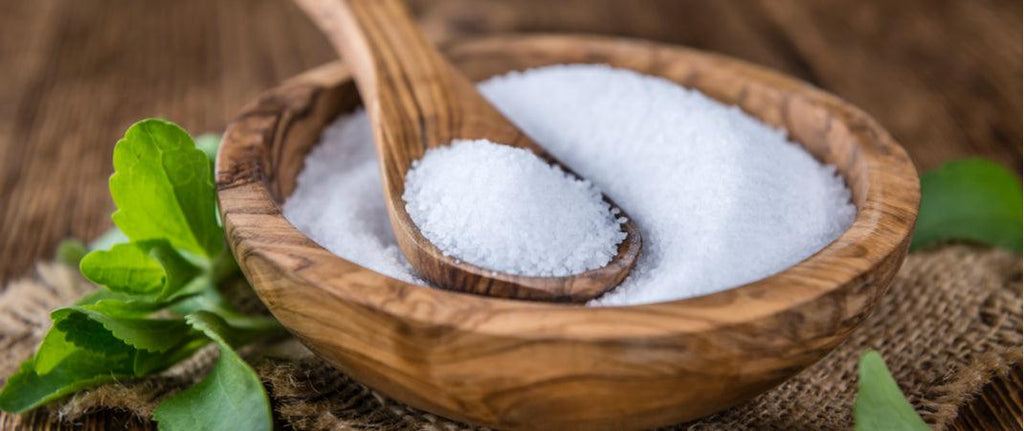
What are sugar alcohols?
Let’s talk about the name first. Under the nutritional facts, these sweeteners are named such to make them more consumer-friendly. They have a chemical structure similar to both sugar and alcohol. However, unlike regular alcohol, they don’t contain ethanol. Also known as polyols, sugar alcohols are used as sweeteners and bulking agents. They’re extracted from plant products, particularly fruits and berries. Compared to other sugar substitutes, they contain fewer calories, making them a perfect substitute for people cutting on their calorie intake or people with diabetes. How exactly do they work? We know that our bodies need insulin to metabolize carbohydrates and convert them to a simple form of sugar — glucose. This is because most of the cells in our body can only use this more simple form of sugar. Unlike other sugar substitutes, sugar alcohols are converted to glucose more slowly, and they don’t require as much insulin to be metabolized. Therefore, the release of glucose in the bloodstream won’t be drastic. What’s more, our pancreas won’t work on overdrive to produce insulin for us to metabolize sugar alcohols. They started out as substitutes for people with special health needs, but over time, they became a popular choice for the general public. Even you may be consuming them without you realizing it. Some of the most commonly used ones are erythritol, maltitol, mannitol, sorbitol, xylitol, hydrogenated starch hydrolysates (HSH), and isomalt.
Common types of sugar alcohols
- Xylitol
 It is the most common type of sugar alcohol and is often used in sugar-free chewing gums, mints, and other oral care products. It contains 40% less sugar but tastes as sweet as regular sugar.
It is the most common type of sugar alcohol and is often used in sugar-free chewing gums, mints, and other oral care products. It contains 40% less sugar but tastes as sweet as regular sugar.
- Erythritol
- Sorbitol
- Maltitol
- Mannitol

 Benefits of sugar alcohols
Benefits of sugar alcohols
